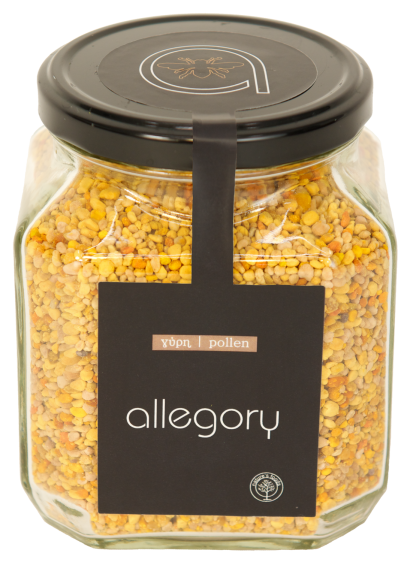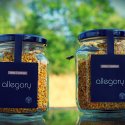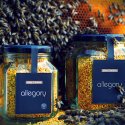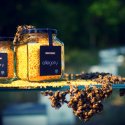What is pollen
Is the product collected by bees from flowers. It is the male reproductive cells of plants (pollen) of Spermatophytes.
Chemical composition:
The average chemical composition is 25.7% protein, 4.8% lipids, 27% carbohydrates, minerals (ash) 3.1%, water 30%, vitamins and minerals.
Nutritional value:
Is one of nature's richest foods in protein, vitamins, essential amino acids, hormones, enzymes and other ingredients useful for our diet.
Pollen helps in mental functioning, strengthens the contraction of the heart and is a natural diuretic. Improves appetite and so it is recommended for cases of weakness and weakness of the body, bad metabolism, intestinal disorders, neurasthenia and psychosis and memory loss. Improves the condition of persons with mild allergic symptoms and helps them to gradually acquire resistance (immunity). It is rich in kistini, an amino acid that positively affects hair growth and hair color, and rutin (also known as Vitamin R) which increases the resistance of the capillaries, thereby protecting the body from brain bleeding. Also, this complete natural food has a beneficial effect on the prostate and also moderates and substantially reduces the problems of menopause.
Dosage:
A tablespoon (13-15gr) per day, covers a large part of the daily needs of protein, vitamins and minerals. It is advisable the consumption of pollen to start with a smaller amount so the body to start getting used to it and gradually reach the recommended daily dosage. The period of consumption should be continuous for at least four months. It can be consumed as such or dissolved in natural juice.
Packaging:
Available in jars of 430 g and 220 g.






